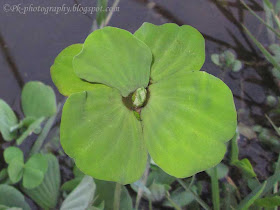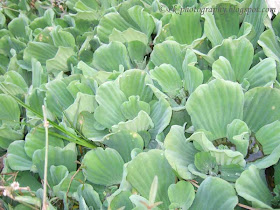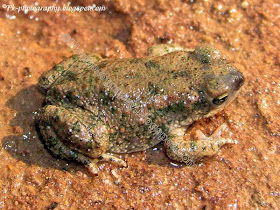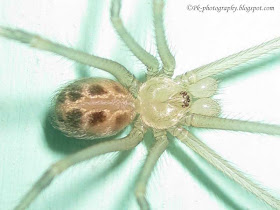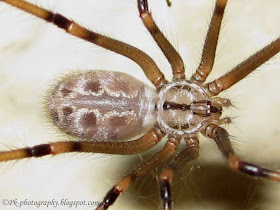A photography blog that focus on Pakistan natural beauty, people, culture heritage, customs and traditions, historical places, travel destinations, wildlife: flora and fauna.
Pages
▼
Vestal Moth - Rhodometra sacraria
The Vestal Moth (Rhodometra sacraria) is a species of moth in the family Geometridae found in Pakistan. It has a wingspan of about 22-28 mm.The adult moth has a pale yellow colored forewing with a pink stripe running from mid inner margin to apex and a white colored hindwing. The food plants of larvae are knotgrass (Polygonum spp.) and dockweed (Rumex spp.).
Vestal Moth - Rhodometra sacraria
Picture-Winged Fly
These pictures are of an unknown Picture-Winged Fly, I shot about two months back. I submitted it for identification to experts, but didn't get any reply yet. Picture-Winged Fly is a name used for all species in the family Ulidiidae. They are commonly found in moist places or on plants and flowers. Adults feed on nectar or fluids from decaying plant material. Larvae feed on dung and on decaying plant material. They got the name Pictures-winged Flies, because of the patterns of bands or spots on their wings.
Picture-Winged Fly (Female)
Picture-Winged Fly (Male)
Any identification help would be highly appreciated.Water Lettuce-Pistia stratiotes
Water lettuce (Pistia stratiotes) is a single species of aquatic plant in the genus Pistia, family Araceae. It’s also called water cabbage or Nile cabbage. Because of its beauty, water lettuce is a favorite plant of the water garden lovers. This invasive species was introduced in our area a few years ago and now almost all lacks and ponds are covered with it. Though water lettuce mat presents a very beautiful view, but the fact is that, it's an unwanted plant for many reasons. Water lettuce mats makes boating and fishing almost impossible. It degrades the water quality. It has negative impact on biological diversity.
Water Lettuce - Pistia stratiotes
Common Indus Valley Toad-Bufo stomaticus
Common Indus Valley Toad or Marbled Toad (Bufo stomaticus) is a common toad in the family Bufonidae, found in Asia, including Pakistan, India, Bangladesh, Iran, Afghanistan and Nepal. It's found in a wide variety of habitats including; open plains, grasslands, scrubland, forest, agricultural land and human habitations. It's nocturnal in nature and at day time it hides in holes, under rocks and in crevices. At sunset, it emerges and starts search for its prey. It feeds on a variety of insects. They gather under lights in streets and houses and wait for their prey to land or fall near them. It's very common in the Indus Vally and probably that is why it got the name Indus Vally Toad. It's very common in our houses and that why it is generally known as "House Toad". Indus Valley Toad is Pakistan's National Amphibian.
Common Indus Valley Toad (Bufo stomaticus)
 |
| Baby Toad |
Lesser Mulberry Snout Moth-Glyphodes pyloalis
Lesser Mulberry Snout Moth (Glyphodes pyloalis) is a species of moths in the family Crambidae (Crambid Snout Moths), subfamily Pyraustinae. It is also known as Lesser Mulberry Pyralid, as it was previously assigned to family Pyralidae. It is a pest of mulberry tree, however the damage in our area is not significant.
Lesser Mulberry Snout Moth (Glyphodes pyloalis)
Daddy Long-legs Spider
Daddy Long-legs Spider (Artema atlanta) is a species of spider in the family Pholcidae. Daddy long legs spider is the common house spiders. It has exceptionally long legs, as compared to the body size. The female body length is about 10mm and legspan is about 50mm (based on single measurement). Daddy long legs spiders are known to be one of the most venomous spiders of the world. However, they are not dangerous for humans, because their fangs are too small to bite or puncture the human skin. They are very common in our houses, but never observed their bite. The spiders in the family Pholcidae are known by a number of common names, including cellar spider, vibrating spider, house spider, daddy long-legger or granddaddy long-legs spider. It's known as "Vibrating Spider", because it vibrates itself and the web as a defense mechanism, whenever it feels threatened.
Daddy Long-legs Spider (Artema atlanta) Male
Daddy Long-legs Spider (Artema atlanta) Female
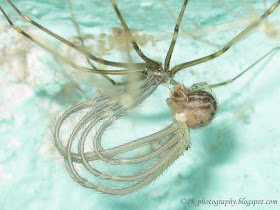 |
| Daddy Long-legs Spider Molting |
































